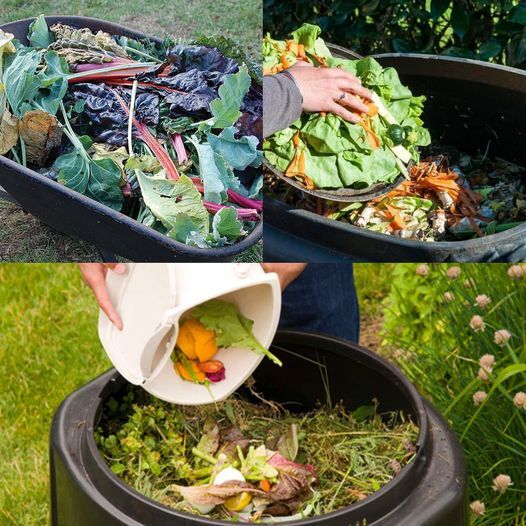ADVERTISEMENT
Trench composting is an easy and efficient way to enrich your garden soil while requiring minimal effort on your part. This method involves burying organic waste directly in your garden, allowing it to decompose over time and provide valuable nutrients to the soil. In this comprehensive guide, we will explain how to trench compost, why it’s beneficial, and provide additional tips to make the most out of this composting technique.
How to Trench Compost
Choose the Right Location: Find a spot in your garden where you plan to grow plants in the future. Trench composting directly nourishes the soil, so think about where your garden could use a nutritional boost.
Dig the Trench: Dig a trench about 12 inches deep. The length and width can vary based on the amount of compostable material you have, but a standard size could be about 1 foot wide and as long as needed.
Add Your Compost Materials: Fill the trench with organic waste, such as kitchen scraps (avoid meat, dairy, and oily foods), garden clippings, leaves, and coffee grounds. Aim for a mix of green (nitrogen-rich) and brown (carbon-rich) materials for well-balanced compost.
Cover the Trench: After adding your compost materials, cover them with the soil you dug out. This conceals the organic material and helps speed up the decomposition process.
Water (If Necessary): If the compost material seems dry, lightly water the area to moisten it. However, be careful not to overwater, as too much moisture can slow down the decomposition process.
Wait and Let Nature Do Its Work: Over time, worms and microorganisms will break down the organic material, turning it into nutrient-rich soil. This process can take anywhere from a few months to a year, depending on the materials used and local soil conditions.
Why Trench Composting is Useful
Improves Soil Health: Trench composting enriches the soil with nutrients, which improves its structure and fertility. As a result, your plants will grow healthier, and you’ll enjoy increased yields.
Reduces Waste: By composting kitchen and garden waste, you’re not only enriching your garden soil but also reducing the amount of waste that goes to landfills. This simple act is beneficial for the environment.
Saves Water: Composted soil retains moisture better than unamended soil, meaning you won’t need to water your plants as frequently. This leads to water conservation and is especially important during dry spells.
Continued on next page
ADVERTISEMENT
